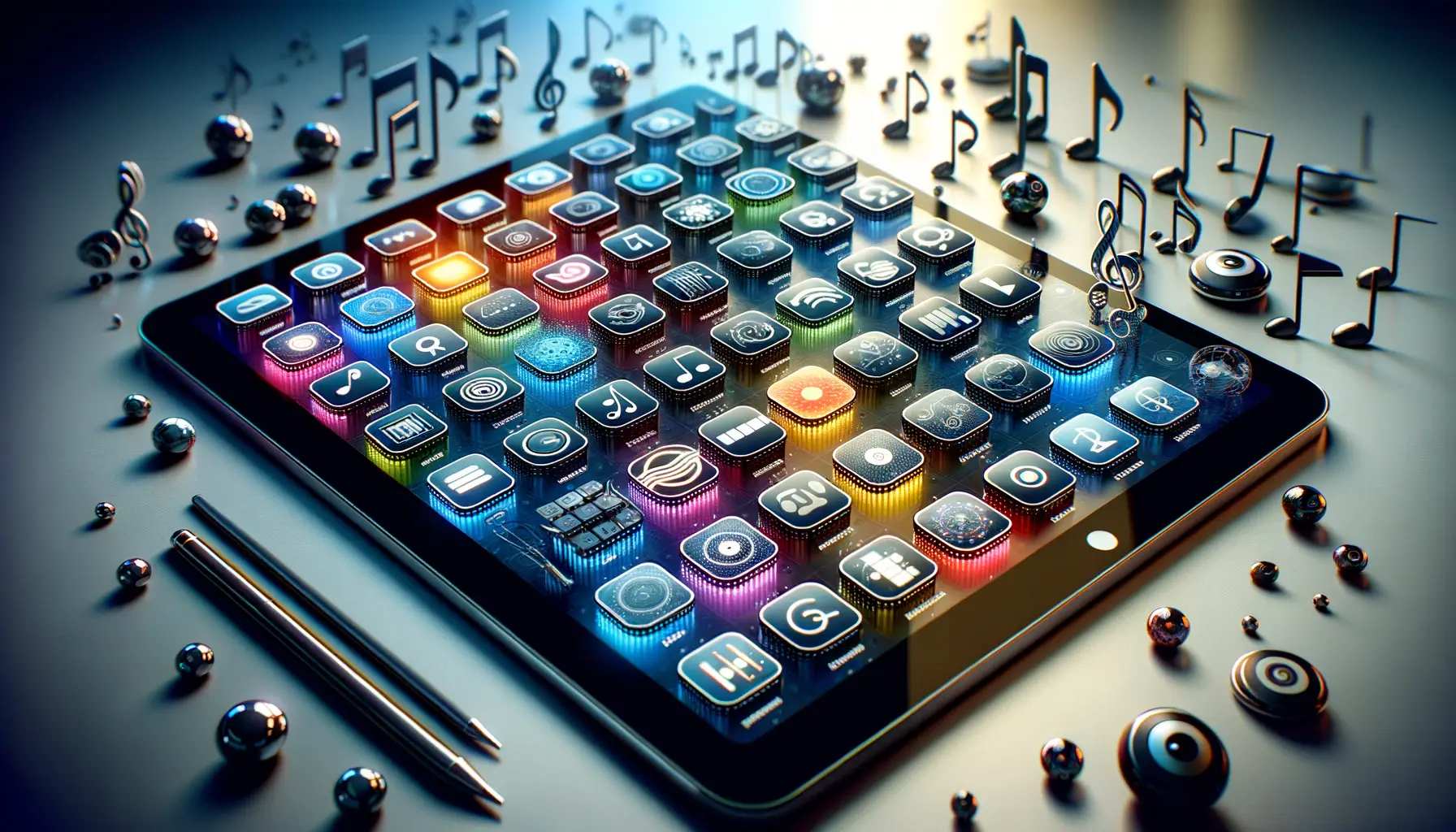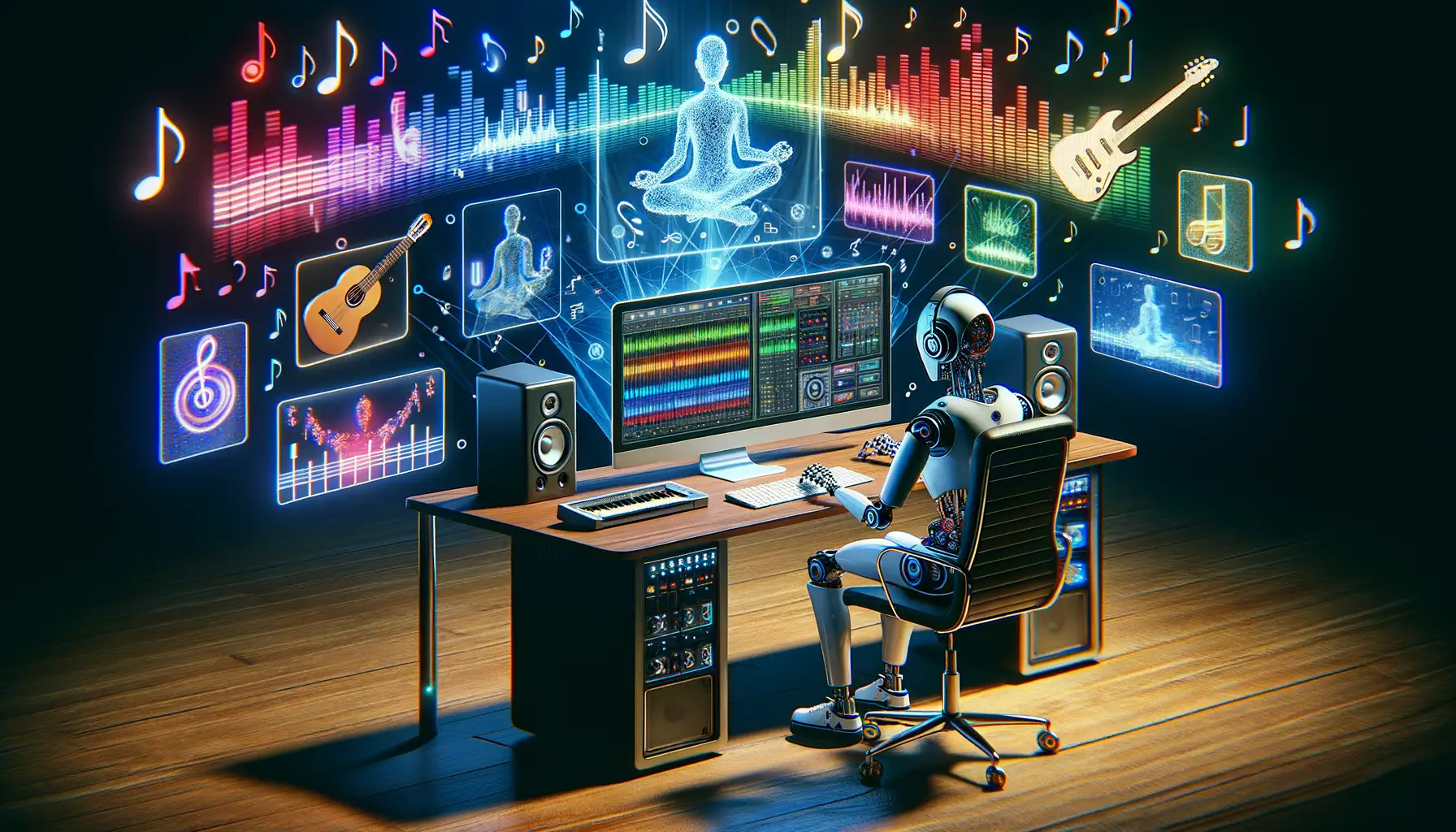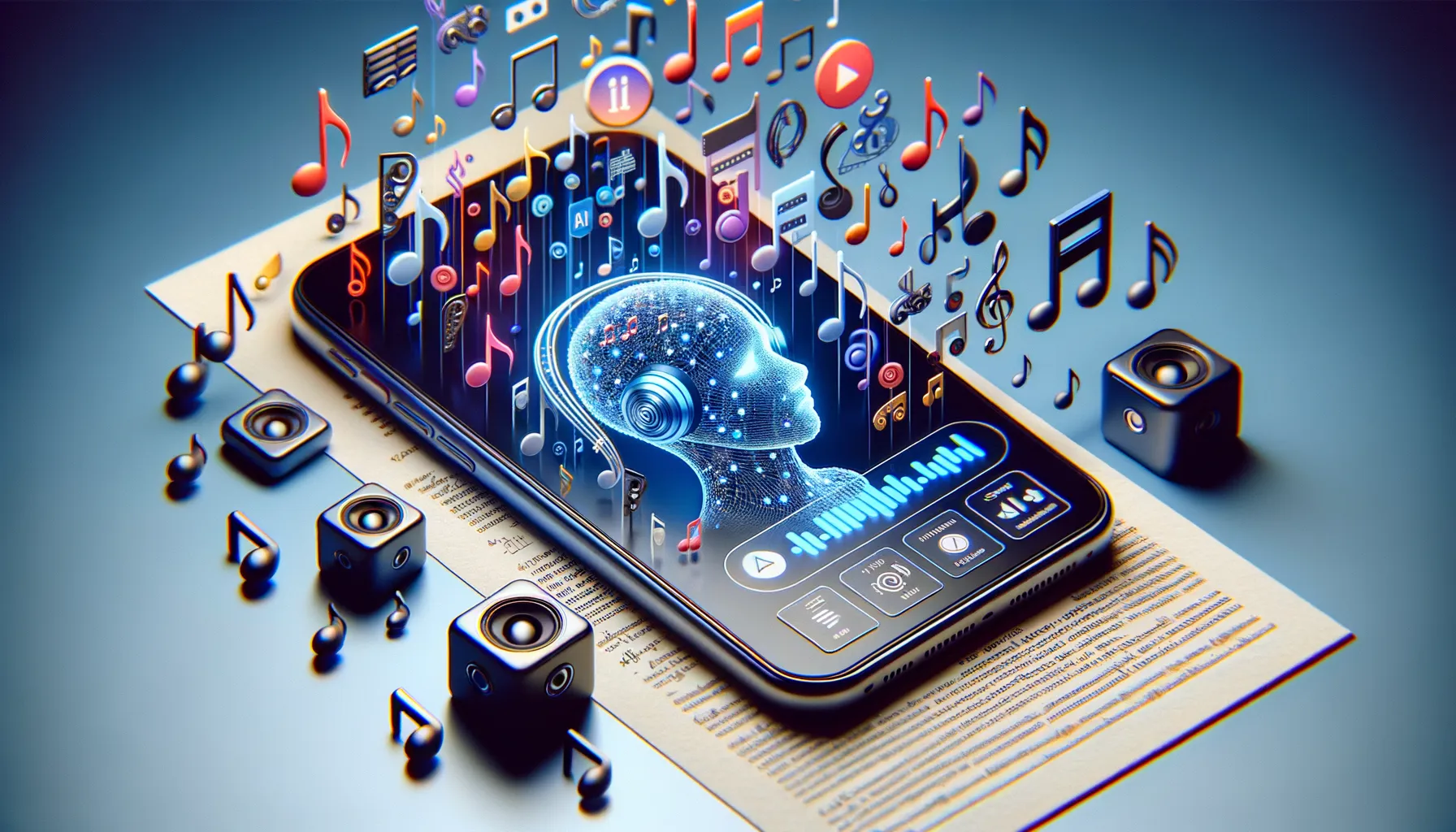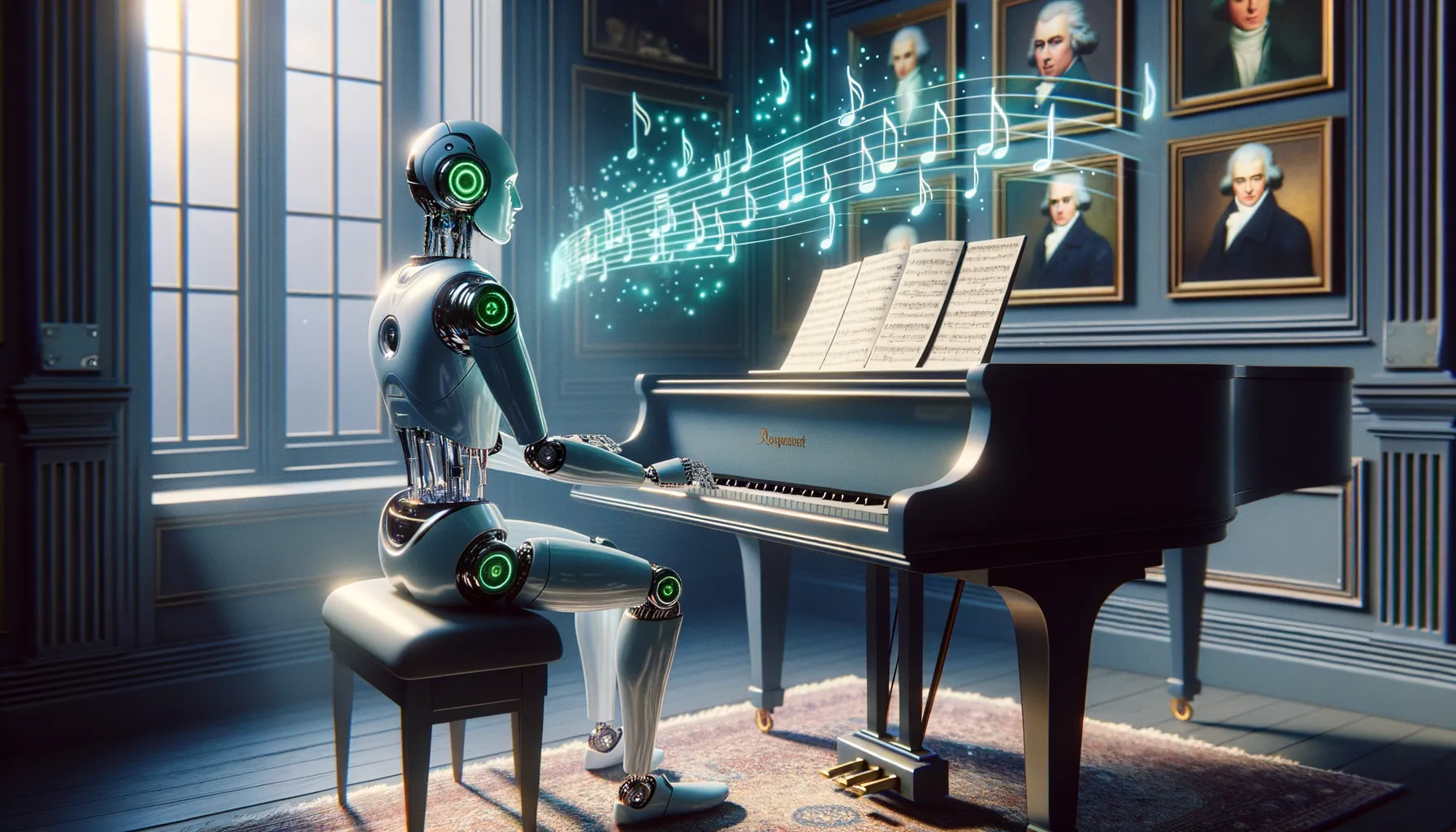Introduction to AI and Its Impact on Music Composition
How AI is Redefining Music Creativity
Picture this: melodies crafted in seconds, harmonies perfectly matched, and drumbeats that feel like your heart’s rhythm. That’s the magic of AI in music composition. Far from replacing creativity, AI is becoming the composer’s secret collaborator. It’s as if you have a tireless bandmate who never runs out of fresh ideas!
Take tools like OpenAI’s MuseNet, which can compose symphonies or mimic your favorite artist’s style. Or apps that analyze vast libraries of songs to help songwriters uncover unique chord progressions. These aren’t just algorithms—they’re gateways to untapped musical possibilities.
Let’s break it down. AI does the heavy lifting by:
- Generating full tracks based on a few notes you hum.
- Providing real-time feedback on structure, pitch, or mood.
- Mimicking styles, from Beethoven to Beyoncé, for inspiration.
Imagine the power of summoning these tools when writer’s block strikes. AI’s role isn’t to override your artistry, but to amplify it—unlocking doors you didn’t even know existed.
Best AI-Powered Apps for Music Composition

Revolutionizing Your Creative Flow with AI
Imagine having a collaborator who never sleeps, never runs out of ideas, and works at lightning speed! That’s exactly what these AI-powered music composition apps bring to the table. They’re like having a digital Mozart in your back pocket, guiding you through melodies, harmonies, and even the trickiest chord progressions. Whether you’re a seasoned producer or someone just picking up a keyboard for the first time, these tools can feel like magic.
Here are some standout apps to kickstart your creativity:
- AIVA: Perfect for creating cinematic soundscapes, this app is like having Hans Zimmer on standby, helping you compose everything from symphonies to emotional piano pieces.
- Amper Music: Don’t know where to begin? Amper steps in as your co-composer, generating tracks based on your preferences while giving you full control to tweak every detail.
- Endlesss Studio: Think of it as a jam session powered by AI. It’s intuitive, interactive, and ideal for those moments when inspiration strikes out of nowhere.
These apps aren’t just tools—they’re catalysts for musical exploration. They flip that overwhelming blank page into an open canvas bursting with possibility. Who wouldn’t want that?
Crafting Masterpieces, No Expertise Needed
Here’s the thing—AI music apps don’t just compose; they empower. You don’t need formal training or years of practice to create something that sounds professional. And honestly, isn’t that thrilling? Picture this: you hum a melody into your phone, and within seconds, an app like Humtap transforms it into a fully orchestrated track. Yes, really!
Some even dazzle with features like mood-based suggestions. Feeling mellow? AI will match your vibe with soft acoustic tones. In a party mood? Expect driving basslines and slick beats. These tools adapt to YOU.
The best part? They save time. Musicians talk about chasing inspiration in bursts, but AI apps keep the creativity flowing, even in moments when your brain feels stuck. They’re not replacing the artist; they’re upgrading the creative process.
Benefits of Using AI-Driven Music Tools

Take Your Creativity to New Heights
Imagine having a silent collaborator, one who works tirelessly alongside you, spinning out endless ideas whenever your inspiration wanes. That’s the magic of AI-driven music tools. These tools don’t just churn out generic loops or sterile beats—they analyze your preferences, adapt to your style, and push your boundaries.
Picture this: you’ve got a melody stuck in your head but can’t find the right chords to bring it to life. An AI tool can generate harmonies that feel intuitive and unexpected. It’s like having a co-producer whispering fresh ideas into your ear. And the best part? It never demands a coffee break!
- Songwriting Assistance: Quickly build complex arrangements without needing advanced music theory knowledge.
- Endless Experimentation: Blend genres, try new effects, or create instruments unique to your sound.
A Personalized Soundtrack for Your Vision
AI-powered tools don’t box you in—they free you. They learn from your inputs, becoming more tailored with every session. One user recalled how they created an atmospheric indie track, only to have the AI suggest additional ethereal textures they’d never have considered. That’s the beauty: these tools refine, amplify, and sometimes even surprise you. Whether you’re a seasoned pro or just finding your footing, AI gently nudges your imagination into places it’s never wandered before.
Tips for Choosing the Right AI Music App

Find the App That Strikes the Right Chord
Picking the perfect AI music app can feel like finding your favorite note in a symphony. So, where do you begin? Let’s break it down, one beat at a time.
First, think about what you want the app to do. Are you a composer seeking inspiration or a curious learner diving into the mix-and-match magic of algorithms? If you’re a beginner, go for apps with an intuitive interface and guided tutorials. Advanced producers might prefer tools with options for deep customization and integration with DAWs like Ableton Live or Logic Pro.
Next up, explore style! Not all AI tools are created equal—some excel in classical compositions, while others thrive in electronic or experimental genres. Check reviews, listen to demo tracks, and don’t be afraid to experiment.
- Does the app support audio export in high-quality formats?
- Will it let you tweak its suggestions, or does it play dictator?
- Is there a library of sounds that resonates with you?
The final test: Does using it spark joy? After all, creating music should feel as good as dancing to it.
Future of AI in Music Composition

AI’s Bold Leap into the Creative Pulse of Music
What once seemed like a futuristic fantasy is now hitting all the right notes—AI-powered music composition is evolving faster than we could’ve imagined. Picture this: algorithms that can compose symphonies in seconds, generate beats that feel distinctly human, or even analyze your mood and spin out a song tailored to your emotions. It’s not just science fiction anymore; it’s unfolding right now.
But where is this going? The future promises even more transformative possibilities. Imagine AI collaborating with humans in ways that feel intimate, like having a co-writer that never gets tired or says no to experimenting with wild creative ideas. Emerging tools may soon offer:
- Music tailored for specific events, like AI crafting atmospheric soundscapes for weddings or tech conferences.
- Real-time improvisation during live performances; think a jazz pianist riffing with an AI “bandmate.”
- Ultra-personalized playlists based on biometric data like your heart rate or sleep patterns.
This fusion of human artistry and machine precision feels less like machines replacing creativity and more like they’re adding dynamism to our musical universe. Will AI be your new jam buddy? We’ll see!
A Vision Beyond Just Notes and Chords
Step into the shoes of tomorrow’s musician: headphones on, you’re composing a track through a seamless blend of your intuition and an AI’s predictive sharpness. AI won’t just create music—it will connect. Think of it as a bridge, breaking down barriers for budding artists who might not know how to read sheet music but have brilliant melodies swirling in their heads.
We could see AI becoming a music therapist of sorts, analyzing harmonies that resonate with emotional healing or mental well-being. Or better yet, imagine grassroots musicians leveraging AI to compete with global stars, fostering a world where discovering unheard, niche talent feels limitless.
The future of AI in music isn’t about dominance—it’s about collaboration. And isn’t that the very soul of music itself? Maybe technology, too, is learning to dance to that beat.

